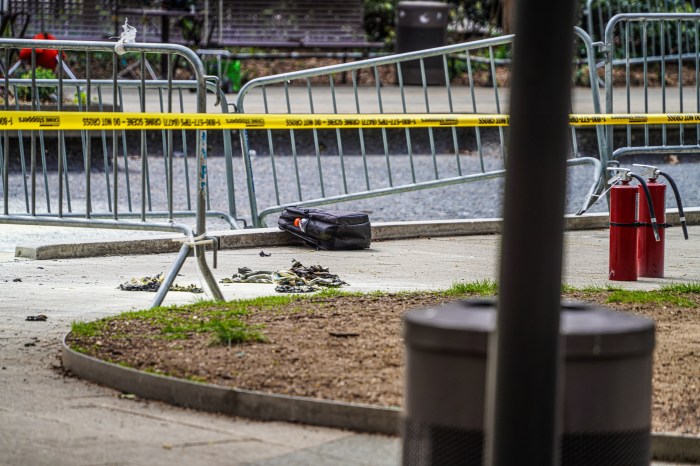By Madina Toure
Queens lawmakers are saying the potential health risks associated with hydraulic fracturing outweigh the benefits after Gov. Andrew Cuomo announced a ban on the procedure last week.
“The governor based his decision on the science – not the demands of oil and gas drillers looking for a quick buck,” U.S. Rep. Carolyn Maloney (D-Astoria) said in a statement. “The public health risks posed by contamination of our air, land and water are too great to allow high-volume, horizontal fracking in our beautiful state.”
State Sen. Tony Avella (D-Bayside), who introduced a resolution in the City Council as well as the first ban bill, called the procedure the “single most serious environmental issue” facing the state and credited grassroots efforts for helping to encourage a ban.
“To fight this, the greatest grassroots effort ever was organized to fight hydrofracking,” Avella said. “There were groups that sprung up all over the state, volunteer organizations, some regular environmental groups, but it was a tremendous effort all over the state to say ‘no’ to hydrofracking.”
Acting DOH Commissioner Dr. Howard Zucker recommended the ban after his public health review noted possible health risks linked to fracking.
“I think it would be reckless to proceed in New York until more authoritative research is done,” Zucker said in a statement. “I asked myself, ‘Would I let my family live in a community with fracking?’ The answer is no. I therefore cannot recommend anyone else’s family to live in such a community either.”
In 2012, state Department of Environmental Conservation Commissioner Joe Martens asked the DOH to review a draft report. The DOH review raised questions about the negative health impact as well as whether there are strong enough mitigation measures in place.
In January 2013, Avella, state Sen. Joseph Addabbo (D-Howard Beach) and City Councilman James Sanders (D-Laurelton) and other state senators sent a letter to Gov. Andrew Cuomo calling for more transparency in the health impact review as well as a public commenting period.
Addabbo said that even if fracking would bring in more jobs as well as increased economic development and revenues, the risks of fracking stood out more prominently.
“Even if that’s slightly true, the water quality or the need to protect our water outweighs any kind of benefit that may come out of that,” he said.
State Sen. Toby Ann Stavisky (D-Flushing), one of the sponsors of legislation calling for a 36-month moratorium on issuing permits for fracking, said the announcement confirmed opponents’ fears.
“I think it’s a very clear announcement that hydrofracking is dangerous, and it’s dangerous because it contaminates the groundwater and pollutes the air near the drilling site,” Stavisky said. “People have to understand that New York City’s drinking water comes from the watershed over the Marcellus Shale.”
City Councilman Rory Lancman (D-Fresh Meadows) agreed.
“I think it was the right decision and I applaud Gov. Cuomo for making it,” Lancman said. “We can’t mess around when it comes to health and the safety of our drinking water and fracking is not yet proven to be safe.”
In early 2015, the DEC will release the final environmental impact report, which will include the DOH review’s conclusions. Martens expects to officially ban fracking at least 10 days later.
Reach reporter Madina Toure by e-mail at mtoure@cnglocal.com or by phone at (718) 260–4566.
































